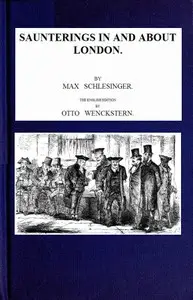"The Wanderer; or, Female Difficulties (Volume 2 of 5)" by Fanny Burney is a story of a woman named Ellis finding her way in the late 1700s, where being a woman came with many rules and not much freedom. It touches on what it meant to be a woman back then and how society viewed them through the journeys of Ellis and her friend Elinor. At the start, Ellis is worried about Elinor, who has just revealed her plan to run away, throwing all of her friends into a panic. Ellis feels responsible and wants to be independent, but at the same time is pressured to respect societal rules. Feeling torn, she sets out to find her own path and come to terms with the chaos around her.

The Wanderer; or, Female Difficulties (Volume 2 of 5)
By Fanny Burney
In a world of rigid expectations, a woman's fight for freedom ignites a journey of self-discovery amidst scandal and societal scrutiny.
Summary
About the AuthorFrances Burney, also known as Fanny Burney and later Madame d'Arblay, was an English satirical novelist, diarist and playwright. In 1786–1790 she held the post of "Keeper of the Robes" to Charlotte of Mecklenburg-Strelitz, George III's queen. In 1793, aged 41, she married a French exile, General Alexandre d'Arblay. After a long writing career and wartime travels that stranded her in France for over a decade, she settled in Bath, England, where she died on 6 January 1840. The first of her four novels, Evelina (1778), was the most successful and remains her most highly regarded, followed by Cecilia (1782). Most of her stage plays were not performed in her lifetime. She wrote a memoir of her father (1832) and many letters and journals that have been gradually published since 1889, forty-nine years after her death.
Frances Burney, also known as Fanny Burney and later Madame d'Arblay, was an English satirical novelist, diarist and playwright. In 1786–1790 she held the post of "Keeper of the Robes" to Charlotte of Mecklenburg-Strelitz, George III's queen. In 1793, aged 41, she married a French exile, General Alexandre d'Arblay. After a long writing career and wartime travels that stranded her in France for over a decade, she settled in Bath, England, where she died on 6 January 1840. The first of her four novels, Evelina (1778), was the most successful and remains her most highly regarded, followed by Cecilia (1782). Most of her stage plays were not performed in her lifetime. She wrote a memoir of her father (1832) and many letters and journals that have been gradually published since 1889, forty-nine years after her death.


















